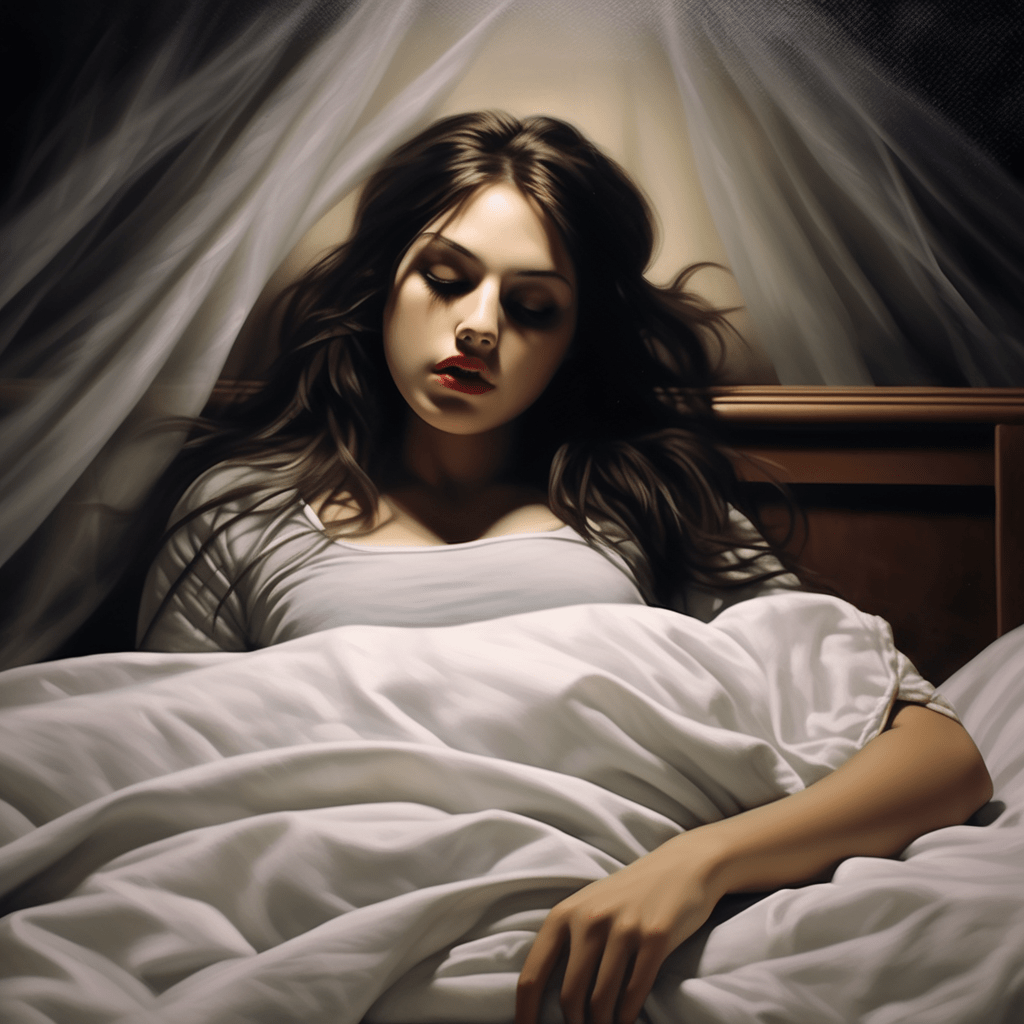Sleep Paralysis And The Scary Moments!

Sleep paralysis is when you temporarily can't move or speak as you're falling asleep or waking up. It happens when your brain doesn't switch off your muscles during sleep, making you feel stuck between being asleep and awake. This can be accompanied by a feeling of pressure on your chest and sometimes scary thoughts. Even though it can be frightening, it's usually harmless and often linked to irregular sleep patterns or other sleep issues. If it happens a lot, it's a good idea to talk to a doctor.
Sleep Paralysis
Sleep paralysis, a unique and occasionally unsettling occurrence, can cast a shadow over the peaceful realm of sleep for some individuals. In this blog post, we embark on a journey to unravel the mysteries of sleep paralysis, exploring its nature, causes, and the factors that contribute to the fear often associated with it. Most importantly, we'll provide practical tips on how to manage and alleviate the anxiety linked to this enigmatic phenomenon.
What is Sleep Paralysis?
Picture a moment when you find yourself suspended between the realms of sleep and wakefulness, unable to move or speak for a brief period. This intriguing phenomenon is known as sleep paralysis, where your body remains temporarily immobilized even though your mind is fully conscious. While it may sound alarming, rest assured it's a natural part of the sleep cycle.
Why Does Sleep Paralysis Occur?
Typically, our bodies enter a state of paralysis during dreams to prevent us from physically acting out these nocturnal adventures. In the case of sleep paralysis, this natural immobilization extends for a short duration, causing a temporary inability to move or speak. Factors such as lack of sleep, irregular sleep patterns, and certain sleep disorders can contribute to experiencing sleep paralysis.
The Scary Moments:
Sleep paralysis can be accompanied by frightening experiences that intensify the fear associated with it. These include:
- Inability to Move: The temporary paralysis of muscles can create a sense of helplessness and fear.
- Hallucinations: Vivid hallucinations may range from the feeling of an intruder's presence to encounters with supernatural entities.
- Sense of Pressure on the Chest: Many report a sensation of pressure on the chest, adding to the overall discomfort.
- Feeling of Suffocation: Some individuals describe a feeling of being unable to breathe properly, contributing to anxiety.
- Distorted Perception of Time: Time may feel warped during sleep paralysis, making the brief experience seem much longer.
- Recurrent Nightmares: The association of sleep paralysis with disturbing hallucinations can lead to recurring nightmares and anxiety about sleep.
- Cultural and Folklore Influences: Cultural beliefs linking sleep paralysis to supernatural entities can amplify the fear.
- Lack of Understanding: Not being aware that sleep paralysis is a common and harmless phenomenon can contribute to fear.
Managing Sleep Paralysis:
While sleep paralysis can be unsettling, it's crucial to understand that it is generally harmless. To manage and cope with the fear associated with it, consider the following:
- Educate Yourself: Demystify the experience by learning about sleep paralysis and understanding its normalcy.
- Improve Sleep Hygiene: Prioritize a consistent sleep schedule and create a relaxing bedtime routine.
- Seek Professional Guidance: If sleep paralysis significantly impacts your well-being, consult healthcare professionals or sleep specialists for guidance.
Conclusion:
Sleep paralysis, though accompanied by scary moments, is a normal part of the sleep cycle for many. By gaining knowledge, improving sleep habits, and seeking support when needed, individuals can overcome the fear associated with this intriguing phenomenon. Remember, a good night's sleep is essential for overall well-being, and understanding sleep paralysis is a step toward achieving just that. So, let's navigate the night with confidence and conquer any sleep paralysis fears that may arise.



